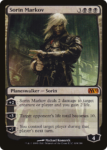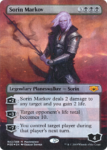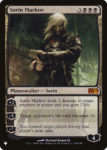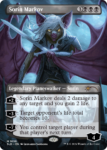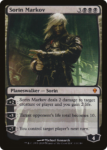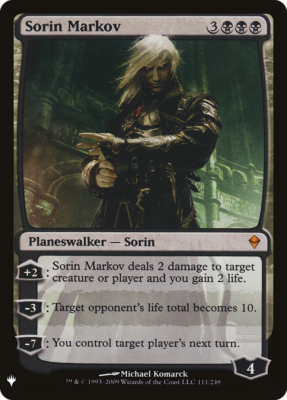
Download Full Image ( Card | Crop )
Show All Legalities >>
Legalities
| Brawl | Legal |
| Commander | Legal |
| Duel | Legal |
| Gladiator | Legal |
| Historic | Legal |
| Legacy | Legal |
| Modern | Legal |
| Oathbreaker | Legal |
| Penny | Legal |
| Predh | Legal |
| Timeless | Legal |
| Vintage | Legal |
| Artist | Michael Komarck |
| Card Type | Legendary Planeswalker — Sorin |
| Card Set | The List |
| Rarity | Mythic |
| Mana Cost | |
| Loyalty | 4 |
| Is Promo? | No |
| Has Foil? | No |
| Online Only? | No |
| Frame Version | 2003 |
| Border Color | Black |
| Release Date | 2019-11-07 |
| Card Number | ZEN-111 |
| Oversized? | No |
| Joke Card? | No |
| Reprint? | Yes |
| In Starter? | No |
| Time Shifted? | No |
| Subtypes | Sorin |
| Supertypes | Legendary |
| Show More >> | |
Support Us, Buy The Card!
Disclosure: The link below is an advertisement. We may receive a commission if you click through and make a purchase on eBay.
Card Text
[+2]: Sorin Markov deals 2 damage to any target and you gain 2 life.
[−3]: Target opponent's life total becomes 10.
[−7]: You control target player during that player's next turn.
Other Printings (5)
Contained In The Following Sets
Card Rulings
No card rulings yet!

